

Gray/Wawro Panel examines immense impact of migration on women and vice versa
Jaclyn Dean ‘12 was the first Rice student to declare a minor in Poverty, Justice and Human Capabilities (PJHC).

Frank Klaus Tittel, a physicist whose career paralleled the rise of modern laser technology and who helped build Rice’s reputation in laser spectrosc...
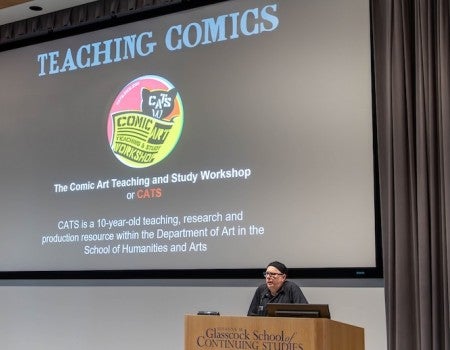
Art teachers, artists and comics enthusiasts gathered at Rice University Feb. 20 for Teaching Comics, a one-day symposium exploring how comics can fun...

Nearly 700 prospective graduate students, current scholars, faculty and staff gathered at the Houston Museum of Natural Science for Rice University’s ...

Martono, a second-year master’s student in violin performance, won the title of Miss Chinatown Houston 2025, her first-ever pageant....
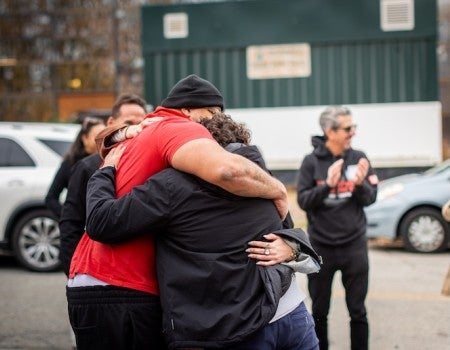
Undergraduates at Rice are digging into real, possible wrongful conviction cases this semester, examining evidence to bring renewed attention to indiv...
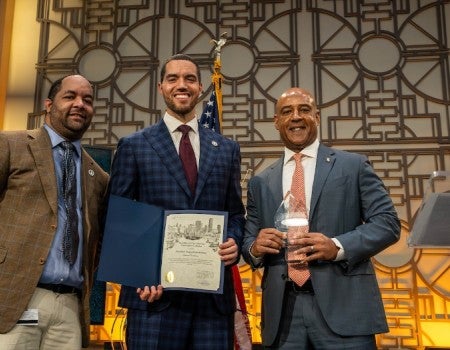
Rice President Reginald DesRoches was honored with a Community Trailblazer Award Feb. 19 by the city of Houston’s controller Chris Hollins during his ...

Rice commends Stacy Mosely for 14 years of service. As executive senior associate athletic director/senior woman administrator, Mosely maintains admin...

Students convened at Rice University Feb. 20 for what organizers called a rare chance to hear and learn directly from one of the most influential musi...
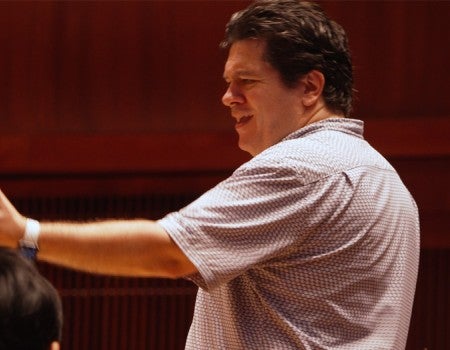
The role brings Cristian Măcelaru ’06 ’08 back to campus several times each year to coach, conduct and mentor students across departments....
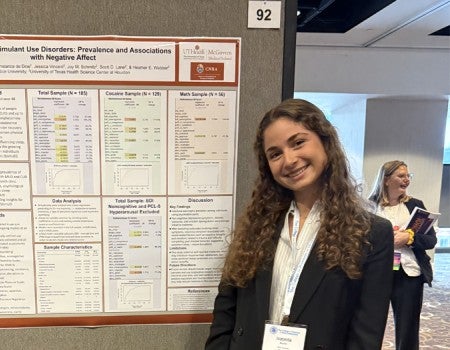
Isabella Bourtin balances GRE prep, lab work and upper-level courses as she pivots from pre-med ambitions toward a future in clinical psychology....

John Green, the No. 1 New York Times bestselling author, influential educator and global YouTube phenomenon, will serve as the speaker for Rice's 113t...

A Rice research lab’s signature keepsake helped perfect a method for growing patterned diamond surfaces that could help decrease operating temperature...

Gray/Wawro Panel examines immense impact of migration on women and vice versa
Jaclyn Dean ‘12 was the first Rice student to declare a minor in Poverty, Justice and Human Capabilities (PJHC).

Rice Business names Constance Porter senior associate dean of Diversity, Equity and Inclusion
Constance Porter, assistant clinical professor of marketing at Rice University's Jones Graduate School of Business, has joined the leadership team of the school's newly expanded Office of Diversity, Equity and Inclusion (DEI).
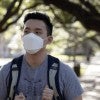
Unconventional Students at Rice 2021: Norman Zheng finds balance
When Norman Zheng ’21 came to Rice he wanted to be pre-med, but he did not think there would be hands-on experience in his first year.

Rice’s OpenStax making diversity updates to free, openly licensed textbooks
HOUSTON – (March 15, 2021) – OpenStax, Rice University’s educational technology initiative, is improving diversity and representation in its textbooks by closely reviewing user feedback and enlisting help from advocates for racial, ethnic, LGBTQ and gender equity.

Rice women's basketball team falls in C-USA Tournament final
The top-seeded Rice women's basketball team was defeated by Middle Tennessee State University 68-65 in the championship game of the Conference USA Tournament March 13 in Frisco, Texas.

US must prepare for long-term economic fallout from pandemic, says Baker Institute expert
The U.S. economy appears to be improving, but the pandemic will have a lasting macroeconomic impact, according to an expert from Rice's Baker Institute for Public Policy.

COVID-19 vaccine now being administered at Rice Stadium
The historic stadium is serving the entire Houston area as a community vaccination site.

Rice recognized as one of nation’s top producers of Fulbright scholars
Rice celebrated one of its largest cohorts of Fulbright scholars last year, when 11 alumni were offered grants from the program for work or research abroad.

Biden should issue executive order granting ‘Dreamers’ citizenship, paper argues
The pathway to lawful permanent resident (LPR) status —otherwise known as getting a green card — is full of roadblocks for Deferred Action for Childhood Arrivals (DACA) beneficiaries, according to new research from Rice University's Baker Institute for Public Policy.

Peter Hotez to join Rice U. infectious disease expert for COVID-19 vaccine webinar
Peter Hotez, a renowned vaccine scientist and physician who’s also a fellow in disease and poverty at Rice University's Baker Institute for Public Policy, will join Rice infectious disease specialist Yousif Shamoo to discuss COVID-19 vaccine developments in a free webinar March 12.